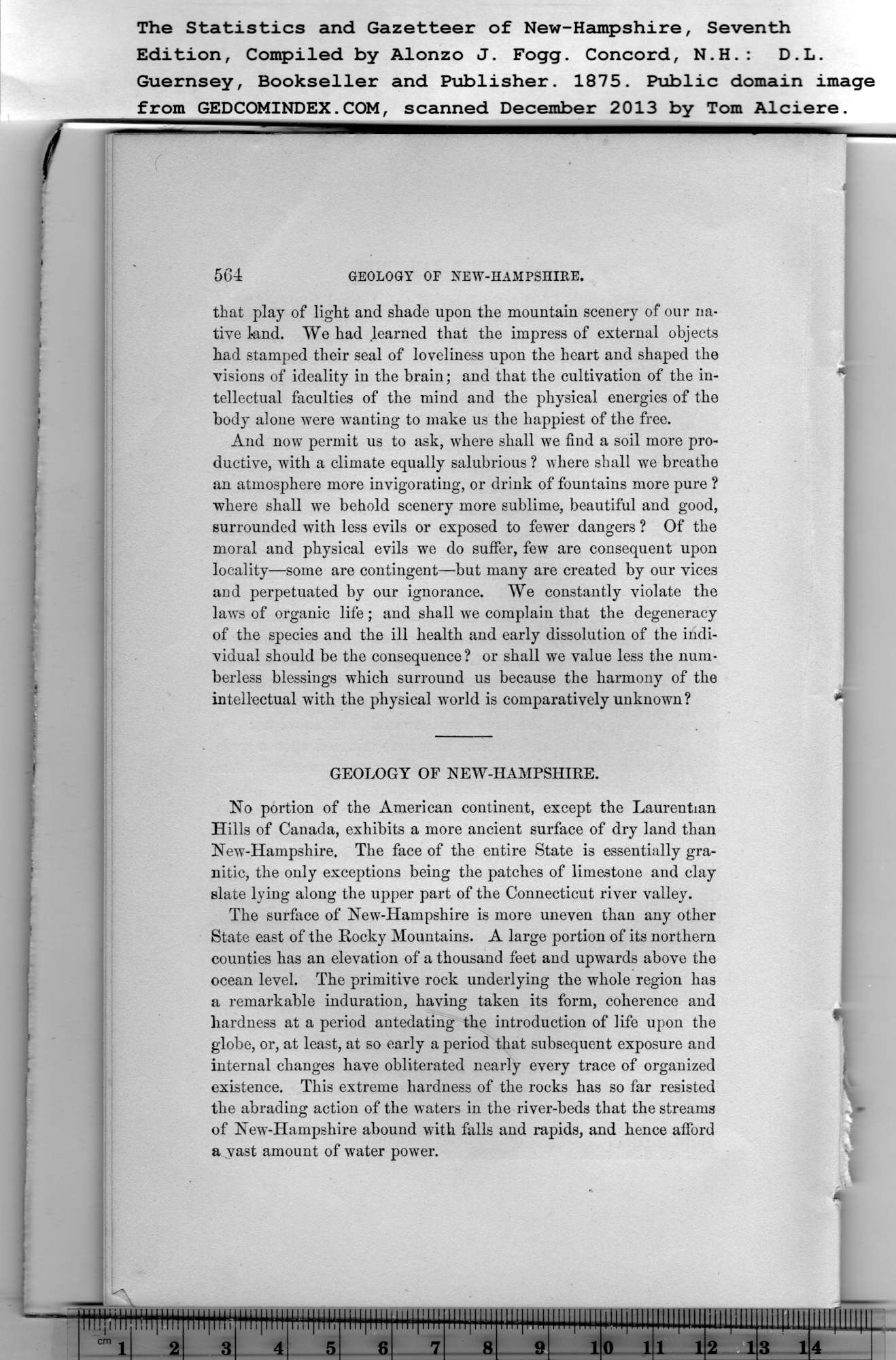|
564 GEOLOGY OF NEW-HAMPSHIRE.
that play of light and shade upon the mountain scenery of our na-
tive land. We had learned that the impress of external objects
had stamped their seal of loveliness upon the heart and shaped the
visions of ideality in the brain; and that the cultivation of the in-
tellectual faculties of the mind and the physical energies of the
body alone were wanting to make us the happiest of the free.
And now permit us to ask, where shall we find a soil more pro-
ductive, with a climate equally salubrious ? where shall we breathe
an atmosphere more invigorating, or drink of fountains more pure ?
where shall we behold scenery more sublime, beautiful and good,
surrounded with less evils or exposed to fewer dangers ? Of the
moral and physical evils we do suffer, few are consequent upon
locality—some are contingent—but many are created by our vices
and perpetuated by our ignorance. We constantly violate the
laws of organic life; and shall we complain that the degeneracy
of the species and the ill health and early dissolution of the indi-
vidual should be the consequence? or shall we value less the num-
berless blessings which surround us because the harmony of the
intellectual with the physical world is comparatively unknown ?
GEOLOGY OF NEW-HAMPSHIRE.
No portion of the American continent, except the Laurentian
Hills of Canada, exhibits a more ancient surface of dry land than
New-Hampshire. The face of the entire State is essentially gra-
nitic, the only exceptions being the patches of limestone and clay
slate lying along the upper part of the Connecticut river valley.
The surface of New-Hampshire is more uneven than any other
State east of the Rocky Mountains. A large portion of its northern
counties has an elevation of a thousand feet and upwards above the
ocean level. The primitive rock underlying the whole region has
a remarkable induration, having taken its form, coherence and
hardness at a period antedating the introduction of life upon the
globe, or, at least, at so early a period that subsequent exposure and
internal changes have obliterated nearly every trace of organized
existence. This extreme hardness of the rocks has so far resisted
the abrading action of the waters in the river-beds that the streams
of New-Hampshire abound with falls and rapids, and hence afford
a vast amount of water power.
PREVIOUS PAGE ... NEXT PAGE
This page was written in HTML using a program written in Python 3.2
| 